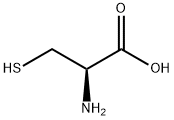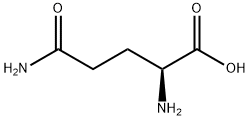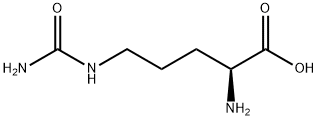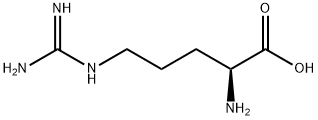L-Cysteine , 10mMinWater , 52-90-4
Synonym(s):
L-Cysteine;Cys;L-Cysteine, Free Base - CAS 52-90-4 - Calbiochem;α-Amino-?-mercapto propionic acid, αlpha-Amino-?-mercapto propionic acid, Cys, αlpha-Amino-beta-mercapto propionic acid;(R)-2-Amino-3-mercaptopropionic acid
CAS NO.:52-90-4
Empirical Formula: C3H7NO2S
Molecular Weight: 121.16
MDL number: MFCD00064306
EINECS: 200-158-2
| Pack Size | Price | Stock | Quantity |
| 1ml | RMB159.20 | In Stock |
|
| others | Enquire |
PRODUCT Properties
| Melting point: | 240 °C (dec.) (lit.) |
| alpha | 8.75 º (c=12, 2N HCl) |
| Boiling point: | 293.9±35.0 °C(Predicted) |
| Density | 1.197 (estimate) |
| bulk density | 300kg/m3 |
| FEMA | 3263 | L-CYSTEINE |
| refractive index | 8.8 ° (C=8, 1mol/L HCl) |
| storage temp. | Store below +30°C. |
| solubility | H2O: 25 mg/mL |
| form | Solid |
| pka | 1.92(at 25℃) |
| color | White |
| PH | 4.5-5.5 (100g/l, H2O, 20℃) |
| Odor | sulfury |
| Odor Type | sulfurous |
| biological source | non-animal source |
| optical activity | Optical rotation: +8° to +9° (c = 5, 1 N HCl, 20°C). |
| Water Solubility | 280 g/L (25 ºC) |
| Sensitive | Air Sensitive |
| λmax | λ: 260 nm Amax: 1.5 λ: 280 nm Amax: 0.2 |
| JECFA Number | 1419 |
| Merck | 14,2781 |
| BRN | 1721408 |
| Stability: | Stability Stable, but may be air sensitive. Incompatible with oxidizing agents, bases. |
| LogP | -2.49 |
| CAS DataBase Reference | 52-90-4(CAS DataBase Reference) |
| NIST Chemistry Reference | L-Cysteine(52-90-4) |
| EPA Substance Registry System | L-Cysteine (52-90-4) |
Description and Uses
Cysteine (abbreviated as Cys or C) is an α-amino acid with the chemical formula HO2CCH(NH2)CH2SH. It is a semi - essential amino acid, which means that it can be biosynthesized in humans. The thiol side chain in cysteine often participates in enzymatic reactions, serving as a nucleophile. The thiol is susceptible to oxidization to give the disulfide derivative cystine, which serves an important structural role in many proteins. When used as a food additive, it has the E number E920.
L-Cysteine is a non-essential amino acid that can be synthesized by the human body under normal physiological conditions if a sufficient quantity of methionine is available. L-Cysteine is commonly used as a precursor in the food and pharmaceutical industries. L-Cysteine is used as a processing aid for baking, as an additive in cigarettes, as well as in the preparation of meat flavours. It is used in foods to prevent oxygen from destroying vitamin c and is used in doughs to reduce mixing time.
Safety
| Symbol(GHS) |  GHS07 |
| Signal word | Warning |
| Hazard statements | H302 |
| Precautionary statements | P264-P270-P301+P312a-P330-P501a |
| Hazard Codes | Xn,Xi |
| Risk Statements | 22-36/37/38-20/21/22 |
| Safety Statements | 36-37/39-26-24/25 |
| WGK Germany | 3 |
| RTECS | HA1600000 |
| F | 10-23 |
| Autoignition Temperature | 420 °C |
| TSCA | Yes |
| HS Code | 29309012 |
| Hazardous Substances Data | 52-90-4(Hazardous Substances Data) |
| Toxicity | LD50 orally in Rabbit: 1890 mg/kg |




